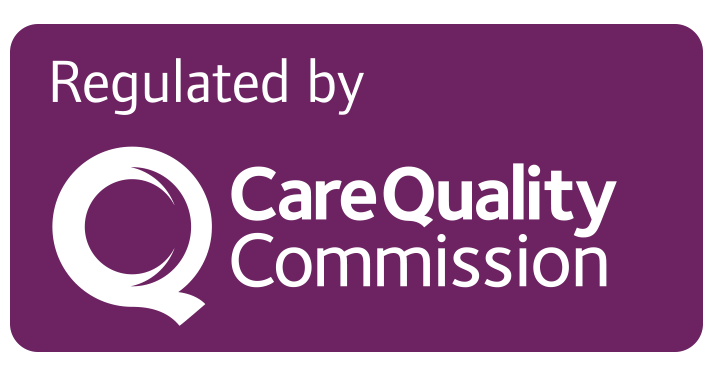Table of Contents
1. Introduction: When Concern Becomes a Question 2. Why Recognizing Early Signs Matters 3. Physical Signs Your Loved One May Need Home Care 4. Cognitive and Emotional Warning Signs 5. Behavioral and Lifestyle Changes 6. Social and Communication Changes 7. How to Approach the Conversation with Your Loved One 8. What to Do Next: Choosing the Right Home Care 9. How Everest Care Can Support Your Family 10. Final Thoughts: A Decision Made with Love
—
1. Introduction: When Concern Becomes a Question
It starts with small things—a forgotten doctor’s appointment, misplaced keys, or unopened mail. At first, these moments seem harmless, but as time passes, patterns emerge. You begin to ask yourself:
Is my loved one struggling more than they admit?
Are they safe living alone?
Would home care help them live more comfortably?
Recognizing the early signs that an aging parent or family member may need home care is a proactive step toward ensuring their health, safety, and quality of life. In this guide, we’ll explore the most important signs, backed by expert research, and provide practical steps to take next.
—
2. Why Recognizing Early Signs Matters
Ignoring or delaying action when these warning signs appear can have serious consequences:
✔ Increased health risks – Missed medications, poor nutrition, or frequent falls can lead to hospitalization.
✔ Cognitive decline – If dementia or memory issues are not managed early, they can progress faster.
✔ Emotional distress – Seniors struggling with independence may experience depression or anxiety.
By spotting these early indicators, families can plan ahead, avoid emergencies, and give their loved ones the dignity and support they deserve.
—
3. Physical Signs Your Loved One May Need Home Care
Changes in physical health are often the first and most visible indicators that extra support is needed.
a) Declining Mobility and Frequent Falls
✔ Struggling to walk without support or balance issues
✔ Unexplained bruises from falls or bumping into furniture
✔ Difficulty getting in and out of chairs or beds
👉 Why this matters: According to the CDC, 1 in 4 adults over 65 falls each year, and falls are the leading cause of injury-related deaths in seniors. A caregiver can help prevent accidents.
b) Weight Loss, Poor Nutrition, or Dehydration
✔ Expired food left in the fridge
✔ Significant weight loss or signs of malnutrition
✔ Difficulty preparing meals or forgetting to eat
👉 Why this matters: Nutrition plays a key role in cognitive function, immune system strength, and overall well-being. If your loved one isn’t eating well, professional support can ensure they receive proper meals.
c) Declining Personal Hygiene
✔ Unkempt hair, body odor, or wearing the same clothes for days
✔ Unbrushed teeth or other neglected hygiene routines
👉 Why this matters: Struggling with personal hygiene can indicate depression, physical limitations, or cognitive decline.
—
4. Cognitive and Emotional Warning Signs
Aging naturally comes with some memory lapses, but when cognitive decline interferes with daily life, it’s time to take action.
a) Memory Problems Beyond Normal Forgetfulness
✔ Repeating the same questions frequently
✔ Forgetting familiar names, places, or recent conversations
✔ Missing important appointments or bill payments
👉 Why this matters: Early-stage dementia can often go unnoticed. Studies show that early intervention can help slow its progression.
b) Confusion and Disorientation
✔ Getting lost in familiar places
✔ Struggling to follow step-by-step instructions
✔ Losing track of time or misjudging dates
👉 Why this matters: This is one of the most alarming indicators that home care is needed, as it could signal conditions like Alzheimer’s or vascular dementia.
c) Emotional and Behavioral Changes
✔ Withdrawal from conversations or social interactions
✔ Sudden mood swings, increased irritability, or depression
✔ Fear or paranoia (e.g., accusing loved ones of stealing)
👉 Why this matters: Seniors experiencing emotional changes may be dealing with loneliness, anxiety, or an underlying medical issue that needs professional attention.
—
5. Behavioral and Lifestyle Changes
Observing changes in daily routines or household management can reveal a lot about a senior’s well-being.
a) Poor Home Maintenance
✔ Cluttered spaces, unpaid bills, or neglected housekeeping
✔ Spoiled food in the fridge or piles of dirty dishes
✔ Utilities getting shut off due to missed payments
b) Increased Dependence on Others
✔ Calling family members multiple times a day for minor help
✔ Difficulty managing medications correctly
✔ Forgetting to turn off the stove or lock doors at night
👉 Why this matters: If everyday tasks become overwhelming, professional home care can relieve stress and improve their quality of life.
—
6. Social and Communication Changes
✔ Not returning calls or messages from friends and family
✔ Skipping favorite hobbies or religious gatherings
✔ Struggling to communicate clearly or express thoughts
👉 Why this matters: Social isolation has been linked to an increased risk of dementia, heart disease, and depression. A home caregiver provides companionship and support to prevent loneliness.
—
7. How to Approach the Conversation with Your Loved One
This is often the hardest step. Here’s how to ease them into the idea of home care:
✔ Use empathy, not authority – Say: “I’ve noticed you seem more tired lately. How can I help?”
✔ Frame it as independence, not loss of control – Say: “Having extra support means you can enjoy more freedom without worrying about the little things.”
✔ Involve them in decision-making – Let them meet potential caregivers and express their preferences.
—
8. What to Do Next: Choosing the Right Home Care
Once you recognize the need, what should you do?
✔ Assess your loved one’s specific needs – Do they need full-time care or just occasional help?
✔ Research local care providers – Look for agencies with good reviews and certifications.
✔ Have a trial period – Many services offer short-term care so your loved one can adjust gradually.
—
9. How Everest Care Can Support Your Family
At Everest Care, we understand that making this decision is deeply personal. Our caregivers provide:
✅ Personalized home care plans tailored to each individual’s needs
✅ Compassionate companionship to prevent loneliness and isolation
✅ Professional support for memory care, daily tasks, and medical assistance
—
10. Final Thoughts: A Decision Made with Love
If you’ve noticed these signs, taking action today can make all the difference. Home care isn’t about taking away independence—it’s about enhancing quality of life.
Want to Know More About How We Care?
We’d love to help you navigate this transition. Contact us today for a warm, obligation-free conversation.
Also please feel free to visit NHS for more information.


